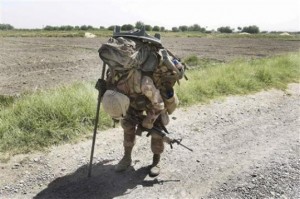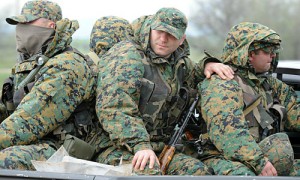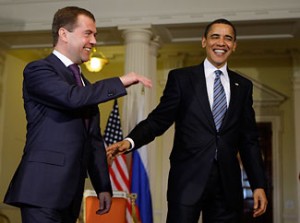Generally I think that articles which rely on the ideas of other bloggers is to be avoided. Occasionally however, it is appropriate to respond to critics. One strength of blogging is the ability to link, criticize, interact, and respond. I accept that although I don’t want it to dominate my prose.
Now for Gulliver at Ink Spots.
People will use just about anything as evidence for things they already believe.
Case in point: Herschel Smith thinks that the presence of women in Soviet combat formations is one of the top five most important reasons for their failure in Afghanistan.
I think that other things were essential to the loss, including [a] focus on the cities v. the countryside, [b] complete breakdown of the lines of logistics due to [a] above, [c] heavy losses because of Taliban control over the roads due to [a] above, [d] focus on mounted combat and mounted patrols as opposed to dismounted operations, [e] women in combat billets which led to a high number of lower extremity injuries and a high number of combat ineffective units, and a whole host of other things. [emphasis mine]
This comes in the SWJ comment thread about an article on “Sri Lanka’s disconcerting COIN strategy,” as part of a post in which Smith dismisses Soviet “ruthlessness” as one of the primary reasons for defeat in the Afghan war.
So in short, girls in the infantry were more damaging to the Russian war effort than bad counterinsurgency tactics. “There is the thing of testosterone, and it’s different because God made it that way.” Ok? Ok. Glad we cleared that one up.
Let’s think carefully about both my comment and Gulliver’s reaction to it. Both say something about the commenters and their thought boundaries. The comment was left at the Small Wars Journal blog in response to an article by Major Niel Smith. If I may be allowed to summarize the thesis, he posits that the more violent and less population centric counterinsurgency model has its supporters. He specifically mentions Ralph Peters and Colonel Gian Gentile; I’m not sure sure about Ralph Peters, but I would comment that the inclusion of Colonel Gentile in this category is true to some extent, but somewhat inappropriate given the nuance included in Gentile’s model and also given the use made of this inclusion (for one of the best discussions of Gentile’s position, see The Imperative for an American General Purpose Army That Can Fight, Foreign Policy Research Institute). His (Niel Smith’s) discussion ranges into the brutality of less population centric counterinsurgency, and in this he should have (in my opinion) focused more on Edward Luttwak.
But getting back to the main point, Niel goes on to grant the assumption that some of the evidence is compelling in favor of this view, but that there is even more compelling contrary evidence – defeater evidence – for the success rate of counterinsurgency focused on heavier combat tactics. At this point he uses several examples, one of which is the Russian campaign in Afghanistan.
So Niel has written a fairly open minded article positing that there is evidence to support what I will call the Luttwak position, while more compelling defeater evidence. He then invites critique. In my critique I didn’t weigh in on the overall thesis, but did essentially state that the Russian campaign was a poor example to support the thesis. I opined that there were other more important reasons that the Russians lost the campaign.
Enter Gulliver. He thinks that I have listed my top five reasons that the Russian campaign failed. Why Gulliver thinks that I have listed my top five reasons is not known. Gulliver would have to answer that question himself. If I had been asked to list my top reasons that the Russian campaign failed, I probably would lead with focus on the population centers and relegation of the countryside to the Taliban to recruit, train and raise support. In second place wouldn’t be U.S. help and assistance, although many would place this one in first or second. My second reason (challenging for top spot) would be the existence of the Russian made RPG, plentiful to the Taliban for reasons that included U.S. help. The Russian RPG was the first EFP (explosively formed projectile) used en mass on the battle field.
But no one asked me to enumerate my top five reasons the campaign failed. I merely included a list of things that initially came to mind. Let’s deal with women in combat now. Gulliver’s response drips with sarcasm even after his incorrect assumptions concerning my list of reasons that the Russians lost. But it remains undisputed that there were women in combat billets in the Russian campaign, and it remains undisputed that there were a large number of lower extremity injuries and that this led to a large number of ineffective units.

Marine in Helmand suffering under a heavy combat load, way more than 100 pounds.
But there is more to discuss on this issue. As regular readers know, we have followed the dismounted campaign by the U.S. Marines in the Helmand Province. CBS reporter Lara Logan has seen the Marines in Helmand without an ounce of fat on their bodies, and she has even expressed concern over their health. When my son deployed to Fallujah he was so slim and muscular that I wondered how he would lose any weight whatsoever, as there was no weight to lose. The only way he lost 20 or 30 pounds was the same way the Marines in Helmand do it. The body turns on itself and begins eating muscle for energy. I am a weight lifter and I know how to avoid this, i.e., I know when to stop my workout because I am no longer helping my body. It’s actually dangerous, although Ms. Logan doesn’t know how to express it. The body hurts itself when it begins using muscle and internal organs for energy.
Here is a test question. We have discussed the Marines carrying 120 pounds on their back in 120 F heat in Helmand, patrolling all day and even conducting squad rushes with this weight. Now for the question for the readers. How many of you – raise your hands now – believe that women could carry 120 pounds in 120 F heat all day in Helmand and then conduct squad rushes? You can answer in the comments – it’s okay. But if you answer yes, you are also required to tell us what kind of dope you’ve been smoking. You see, we all know what the honest answer to this question is, even if Gulliver doesn’t admit that he does.
Now let’s close with a little examination of what the Democrats think about special forces, special operations forces, and women in combat billets. I support women in the military, and one example of such a role would be the use of female Marines to interact with Afghan women after terrain has been seized. But the Democrats in Congress ( hereafter Dems) wanted something different for the Army. Hence, women occupy combat billets in the Army.
The Dems want their social experiments and projects, but even they know that there has to be a boundary for this. Michael Fumento has a good article on the Dems’ love of SF and SOF and their promise to expand the SF. I have weighed in on the cult of Special Forces, so I won’t reiterate my issues with the Dems’ proposal or Michael Fumento’s prose here.
The point is that SF are deployed all over the globe. They are involved in black operations that are never seen, never heard of, and are not subject to the Dems’ social experiments. The Dems know this and they want it that way. Women are not allowed in combat billets, not in the Special Forces, not in the Special Operations Forces, and not in Marine infantry. The Dems want their programs, but they also want to know that they can call on infantry to do the job of infantry, so they restrict their own programs to known boundaries. I challenged those boundaries and believe that they should not allow women in Army infantry. The Dems include women in Army infantry. But they stop there. Not the Marines, and not Army SF.
There you have it. They are at the best simply not forthcoming, and at the worst, disingenuous liars. The truth gets spoken in quiet circles when no one but the power brokers are listening. The public hears what the power brokers want them to hear. One piece of that tripe is that there is no difference between men and women in the military. They know better, but don’t want you to know that they know.
Now back to Gulliver … if Gulliver has managed to hang on and pay attention this long. Is it I who has allowed his bias (presuppositions) to dictate the outcome, or Gulliver? Note again his comments above. Gulliver is simply indignant that I have “dismissed” Soviet ruthlessness as the reason for their failure in the campaign. But isn’t he begging the question? Has he not even allowed the Niel Smith’s assumptions to dictate the course of the debate? Niel has allowed that there is evidence that supports Luttwak’s thesis, but believes that there is stronger defeater evidence. Gulliver doesn’t engage in the debate. He simply assumes that the Soviets lost due to the reasons he outlines, and then proceeds from there. Who then is the one who uses just about anything as evidence for things he already believes?
The reader can judge for himself. In the mean time, I have given you Luttwak, Gentile, Niel Smith, women in combat billets, heavy combat loads, squad rushes, the Small Wars Journal blog, SF and SOF, black operations and the Dems in Congress to think about.
If I ever give you worthless tripe like you read at Ink Spots, you should savage me in the comments.







